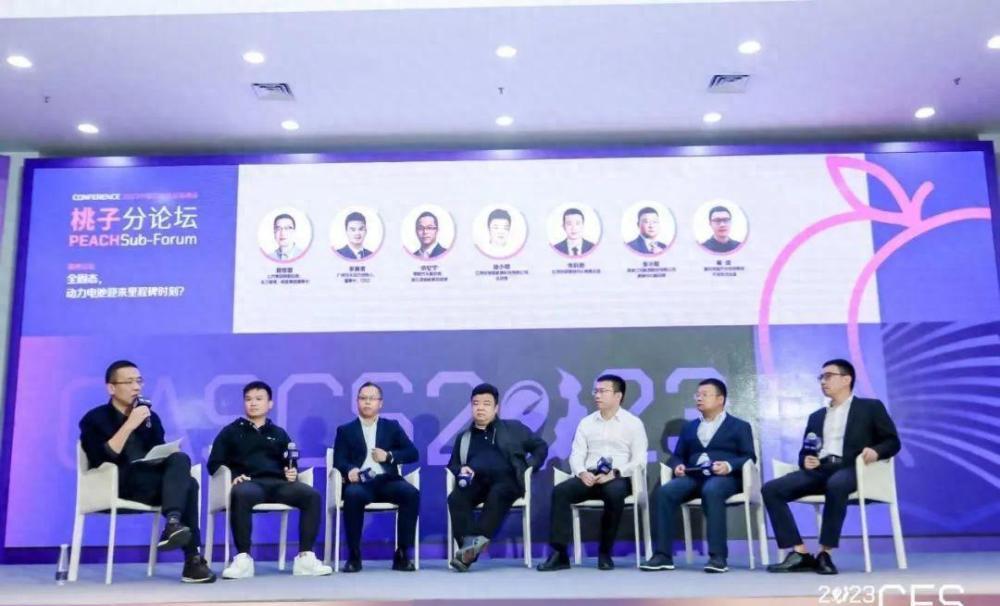Wait for the solid-state battery to come out, and the daylily is cold?
Since Toyota's high-profile announcement this year to vigorously develop solid-state batteries, it seems that the domestic market has also ushered in a wave of solid-state boom, and many battery companies and even car companies have begun to follow suit and plan the product line of solid-state batteries. Interestingly, when solid-state batteries were getting more and more hyped, Toyota jumped out and said that it would postpone the mass production and commercialization of solid-state batteries from the original 2027 or so to 2030.
In this way, even Toyota feels that solid-state batteries are indeed far away, so why is it so difficult to commercialize automotive solid-state batteries? And do future cars really need solid-state batteries? At the 2023 China Automotive Supply Chain Summit held last month, many experts from the battery industry had a detailed discussion on the above issues.

Regarding the prospect of solid-state batteries, Song Yining, vice president of Leapmotor, said: "My side is an OEM. In fact, I still have a relatively conservative attitude towards solid-state batteries, including myself, for all-solid-state. I think that although Toyota says that it will take the lead in 2027~2028, I think it will be at least 2030, because you have not found new media, and the cost does not meet the requirements of commercialization, so it cannot be mass-produced."
That is to say, from Mr. Song's point of view, the biggest problem in the current solid-state battery is that there is no suitable battery material as a medium, and the so-called suitability here does not simply refer to the ability to meet the performance requirements, but also to meet the requirements of commercial mass production. If the cost of automotive solid-state batteries remains high, then no matter how good the performance is, it is impossible to be used.
Due to the incompatibility of the conductive dielectric of the all-solid-state battery, theoretically speaking, it is impossible to find a direct use of the medium in nature, which is very different from the traditional power battery, even if the raw materials of the traditional battery need to be processed technically after mining, but in general, the cost is controllable, and the medium of the solid-state battery must be artificially synthesized through a large number of chemical reactions.
In this regard, Xu Xiaoming, general manager of Jiangxi Anchi New Energy Technology Co., Ltd., expressed his views, he believes that in fact, all-solid-state batteries are not a new thing, this thing has applications in aerospace, chemical industry and many other fields, the problem is how to solve, the problem of high cost of solid-state batteries, and this includes technical problems similar to "how to migrate lithium ions to the electrolyte". In contrast, he is more optimistic about semi-solid-state batteries, that is, some liquid is added to them, which can well solve the above-mentioned lithium-ion migration problem.
In addition, the use scenarios of automobiles are very complex, and various special working conditions determine that the battery stability must be good enough, although the so-called "safety" It can be done by stacking, if it is a mobile phone of several thousand yuan, it is okay, after all, the battery is small, and it will not be too expensive to add some protective measures, but the car battery is large and heavy, if you want to protect it, it will inevitably pay a huge economic price, if you count its already high cost, then you want to let the solid-state battery on the car, the difficulty is really not small, even if the manufacturer is willing, consumers may not be willing.
Combined with the opinions of the above experts, then we can basically conclude that the road to mass production of solid-state batteries must be difficult, at least until 2030, it will be difficult for us to drive cars that use solid-state batteries, and this has led to another problem.
In fact, even now, the battery life of the electric car manufactured by the mainstream manufacturers can basically meet the daily commuting needs, and the real reason why we want to have a longer battery life is nothing more than the lack of guarantee in charging, so we want to be able to make the battery life of the car last longer, so as to reduce the anxiety of "charging", which is also the reason why solid-state batteries can attract manufacturers to enter the market.
Perhaps standing at the time node in 2023, we do need solid-state batteries, high-performance batteries with high battery density and long-lasting battery life, but by 2030, do we really need them?
The answer is probably no. After all, at the current domestic development rate, in the next 5~10 years, the domestic charging infrastructure is likely to be improved, and ordinary lithium batteries will continue to improve their performance with the progress of technology.
Therefore, under the premise of perfect charging facilities, the battery life of ordinary lithium batteries of three to five hundred kilometers is actually completely sufficient, and there is no need for manufacturers to increase costs in order to pursue thousands of kilometers of battery life, and consumers do not need to pay more for "excess performance".